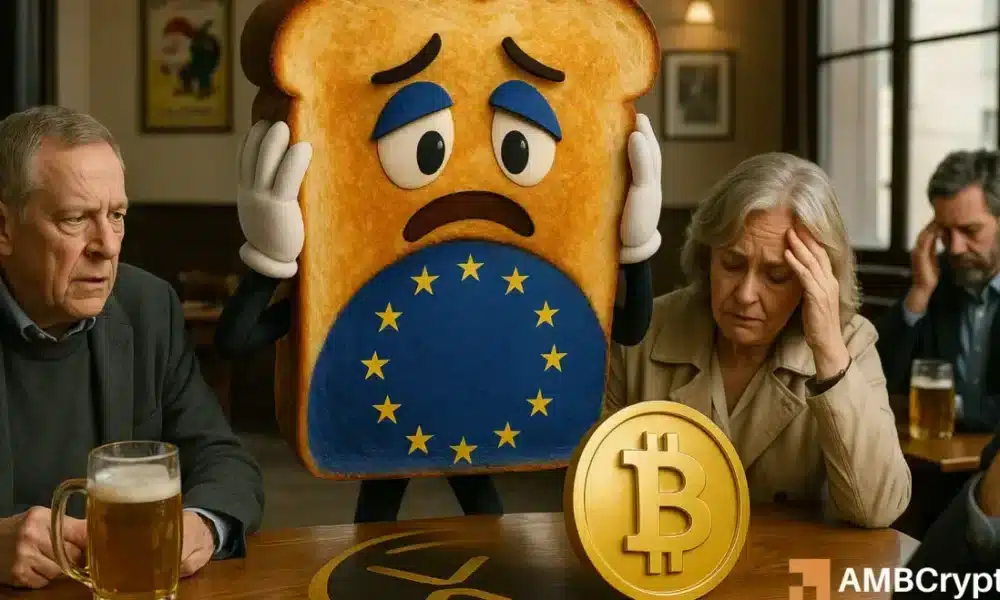
Europe’s Financial Crisis: Why Bitcoin Is Gaining Traction
As Europe’s economic stability comes under threat, renowned investor Robert Kiyosaki has issued a stark warning about the region’s financial future. With European bonds dropping by a staggering 24% and political unrest escalating, many investors are seeking refuge in alternative assets such as Bitcoin, gold, and silver to safeguard their wealth.
Kiyosaki’s Warning: “Europe is Toast”
According to Kiyosaki, the economic downturn is not limited to one region. In France, for instance, rising social unrest and sharp declines in government bonds paint a troubling picture. Kiyosaki even went as far as to claim that the “French people are on the verge of a Bastille Day-style revolt,” signaling deep dissatisfaction with the country’s financial strategies and its broader economic health.
He emphasized the need for financial diversification, urging investors to abandon traditional portfolios heavily reliant on stocks and bonds. The decline in American Treasury bonds—down 13% since 2020—highlights the global shift in confidence regarding government’s ability to manage debt.
Bitcoin: A Modern Hedge Against Instability
Despite market volatility that has caused Bitcoin’s valuation to dip below $108,000, Kiyosaki remains optimistic about its role as a long-term hedge. He is not alone. Bitcoin advocate Max Keiser, who advises El Salvador’s President Nayib Bukele, has echoed similar cautionary statements. Keiser urges investors to consider diversifying into cryptocurrency to prepare for instability in traditional markets.
Kiyosaki’s sentiment aligns with those of other financial experts who claim that Bitcoin offers unique benefits during economic crises. Its decentralized nature makes it impervious to government control, thereby offering an “exit route” for investors looking to protect their wealth.
European and Global Moves in Bitcoin Adoption
On a larger scale, European institutions are exploring greater adoption of Bitcoin despite growing concerns over risk management. In Q3 alone, over 140,600 BTC were traded in newly structured contracts—nearly a year’s worth of mining supply in just two months.
The European Banking Authority (EBA) has also taken steps to regulate crypto-asset exposure in the bloc. These measures, under the EU’s Capital Requirements Regulation 3, aim to standardize risk management practices across EU banks.
Meanwhile, El Salvador, a central hub for Bitcoin innovation, continues to expand its crypto ventures. With regulations now allowing banks to hold Bitcoin and manage crypto services, the country is sending strong signals to the global economy about Bitcoin’s place as a legitimate financial tool.
Why You Should Consider Investing in Bitcoin
As fiat currencies falter and confidence in traditional government bonds plummet, Bitcoin stands out as a promising hedge against financial instability. Unlike gold, Bitcoin is easily transferable and has the potential for even greater returns.
If you’re looking to explore Bitcoin’s potential, consider secure platforms like Coinbase, one of the most trusted crypto exchanges globally.
Final Thoughts
With Europe and other Western economies facing increasing volatility, the importance of embracing decentralized financial systems like Bitcoin has never been greater. Whether you’re an experienced investor or just starting, diversifying your portfolio with Bitcoin could provide the safeguard you need against future economic challenges.






